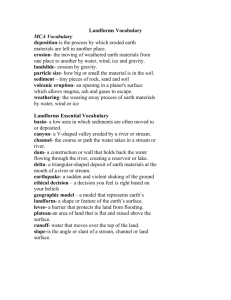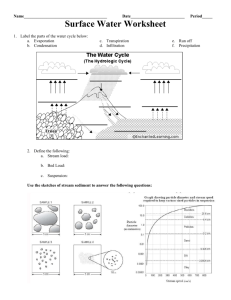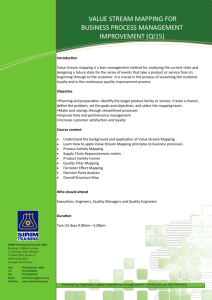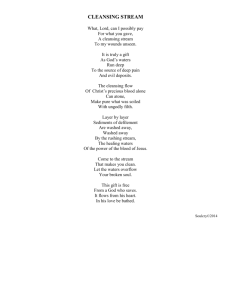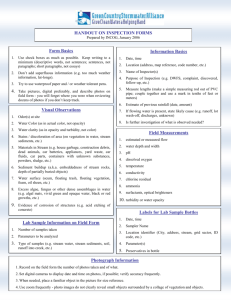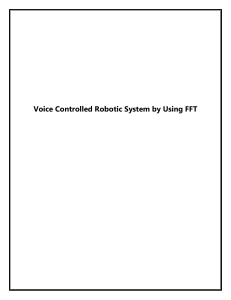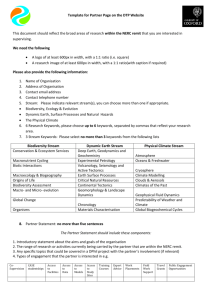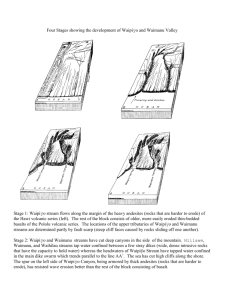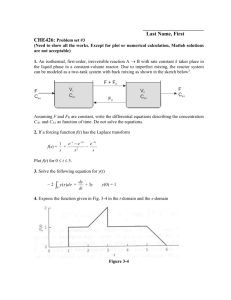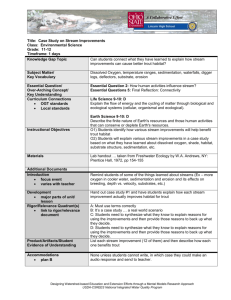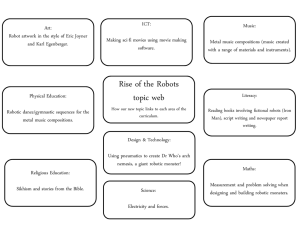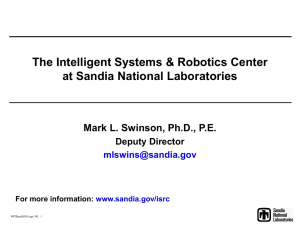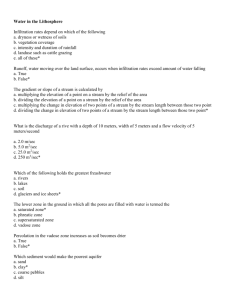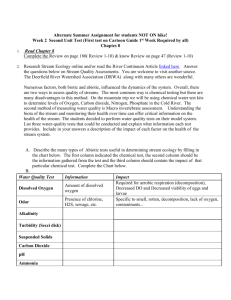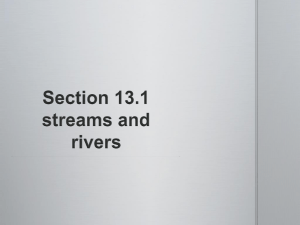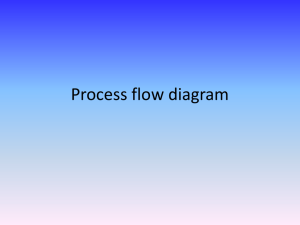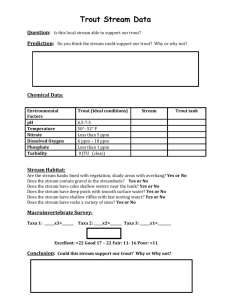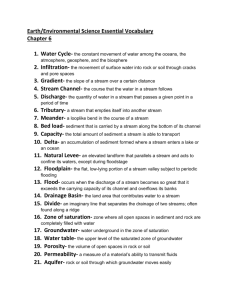Slide 1
advertisement
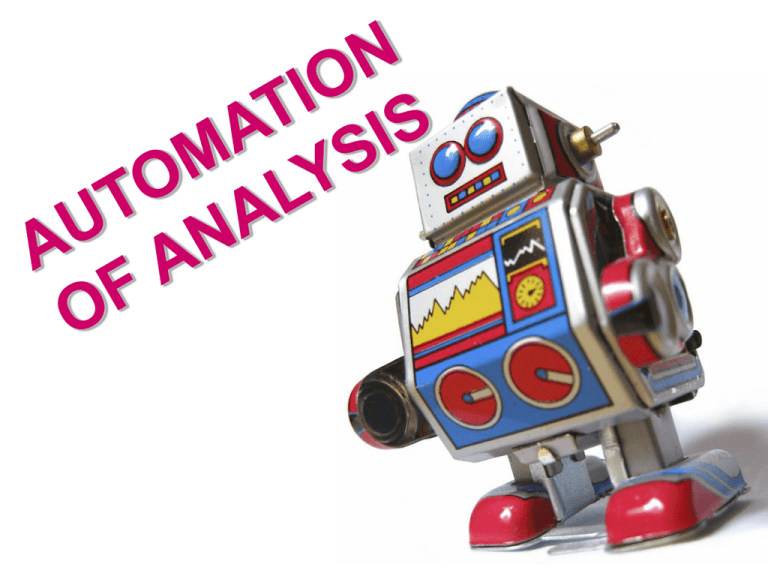
Some Advantages of automation: Some applications: - quality control - process control - environmental monitoring Autotitrator Titrations were of the first automated analytical techniques Schematic representation of an automated colorimetric analysis Samplers: Autosamplers Pumps: Peristaltic pumps Operates by means of rotating bars attached to a chain drive which compresses the plastic tubes to drive the liquid forward. Syringe pump Automated determination of magnesium in urine using DAB (o,o’-dihydroxyazobenzene) FLOW INJECTION ANALYSIS (FIA) Involves injecting a liquid sample into a carrier stream which contains all chemicals necessary of the analysis. The stream then flows through the detector. The stream is unsegmented by air bubbles, thus dispersion of the sample occurs by both: CONVECTIVE TRANSPORT DIFFUSIONAL TRANSPORT Due to solution flow Parabolic velocity profile in direction of flow Due to concentration gradient Radial diffusion Block diagram of a flow injection spectrophotometric monitor for the determination of nitrate in river water Valves: Load sample loop: Injection valves Flow through: Selection valve Results for continuous flow analysis of ethanol in beverages CONSTANT MONITORING Generally difficult to analyse within a process stream. Often divert some of the steam and introduce a sampling loop. The analysis could act as a feedback for optimising control of the process. Submersible UV-Vis spectrometer Schematic diagram of an analyser/controller for an acid catalysed reaction ROBOTICS Used when large numbers of samples have to be routinely processed before measurement. In this country robotics is currently mainly used in the fire assay for gold and PGM’s The pouring process: Manual Robotic Robotic lab
